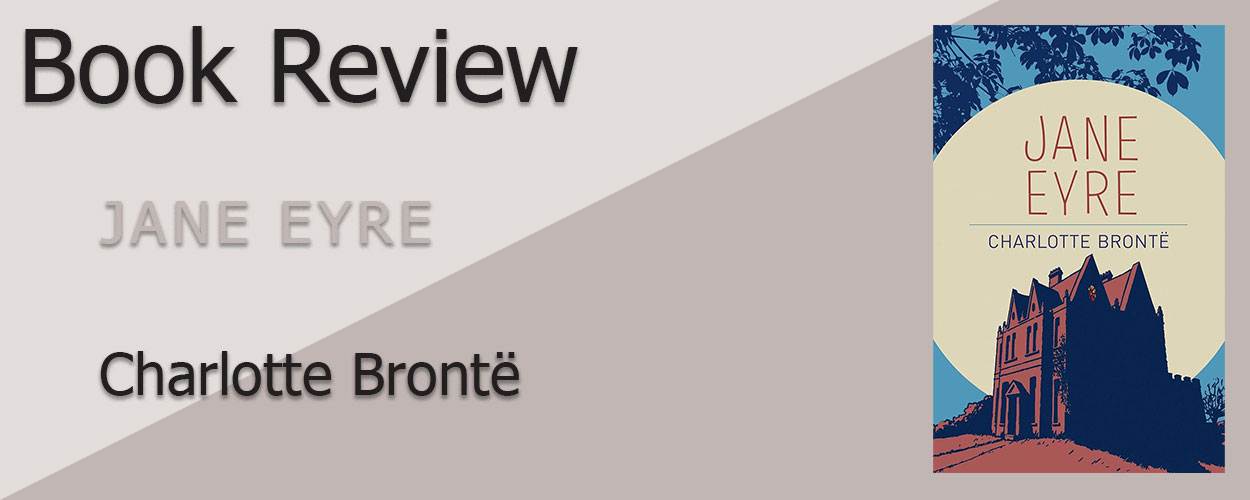

I liked this book, but it’s not to my taste
Rereading this Classic yet again by one of the Brontë sisters. I’ll soon get to The Professor, then other books by the other sisters.
Read: Mar. 18 – Mar. 19, 2025
Genre: Classic, Bildungsroman, Romance
Audience: General, Adult
Book contains: child abuse, death, sickness, madness, fire/arson, attempted murder
Purchase a copy from Amazon.ca
Jane Eyre, a penniless orphan, has had a hard life. Her aunt, Ms. Reed, hated her from the start, and then sent her off to boarding school after ten long years of mistreatment. At school, Jane suffered again, but rules soon changed, and she stayed and learned for six years, then taught for two. At last, she decides to broaden her horizons, and becomes governess to a bright young French girl named Adèle, under the employment of Mr. Rochester of Thornfield Hall. She soon learns that Thornfield has its own share of secrets.
I was never a fan of this type of book before, and I never sought it out. I still don’t, for the most part, but I’ve found that I’ve come to enjoy it. This book has just enough mystery, romance, and a bit of supernatural spark to hold my attention and tug at my heartstrings.
As this is a coming-of-age story, this book is written in first person. Jane often includes the reader themselves, addressing them as “Reader” and talking to them as if telling this tale directly to you. I appreciate this inclusion, as it helps me to feel even more enveloped by this story.
I’ve read this book twice before: once in high school for an Honours English class, and a second time just listening to the audiobook as I went about my day. This rereading was done also while working, but with purpose, and at times I followed along in my physical copy. I listened to the LibriVox version, read by Elizabeth Klett, who is an excellent reader; I’ve listened to her work before.
Our narrator, Jane Eyre, is a plain-looking woman by all accounts, but also stubborn and quick-witted. She’s not one to mince words in the name of politeness or bite her tongue when she’s wronged. I relate to her a lot in this way, since I don’t see the point in not calling people out on their transgressions if it means they continue in ignorance or purposeful cruelty. This can be an unlikable trait at times, and it does cause Jane issues, but just as often it does her well. She is steadfast in her beliefs, though is still capable of admitting when she is wrong. Meanwhile, Mr. Rochester is a standoffish man at first, and his actions and motives don’t always make sense. Only by rereading the book can you fully comprehend what he does (and even then, I find some of these actions foolish). Jane meets quite a few other people in her lifetime, some hard and cruel, others kind.
The romance between Jane Eyre and Mr. Rochester is the main relationship of this coming-of-age story, and thus I must spend due time on it. It’s not my favourite relationship, I’ll admit, but it’s an understandable one. The age gap brings me hesitance, as he is twenty years her senior, but I deeply enjoy the melding of minds between them. Neither participant of this relationship is shallow or vain, as neither are described to be beautiful or handsome. Jane also continuously refers to Mr. Rochester as her “master” which is true in the sense that she used to work for him, but I found odd once they became romantically involved. Nonetheless, it’s clear that the love they feel is true, and their actions are proof of this.
I love Charlotte Brontë’s writing here. The descriptions of nature and her way with words are inspiring to me. I want to incorporate some of the words and phrases into my own work. At times her style is confusing to me, and the dialogue can get difficult to understand, but after reading this book a few times, I think I’m catching a lot more of the hidden meanings.
As the book takes us through Jane Eyre’s life, from her early years to her teen years and beyond, I’d say the pacing went quite well. It skipped over pieces that were unnecessary, summing up time differences in a few short sentences, and each scene had something new to add to the tale as a whole.
This book is a must-read classic that I highly recommend for fans of bildungsroman fiction, romances, and journeys of self-discovery.
Jane Eyre by Charlotte Brontë
The Professor by Charlotte Brontë
Villette by Charlotte Brontë
Emma by Jane Austen
Wuthering Heights by Emily Brontë
A Portrait of the Artist as a Young Man by James Joyce
The Secret Garden by Frances Hodgson Burnett
Great Expectations by Charles Dickens
Tigerpetal Press is a small book press dedicated to publishing local authors and poets.